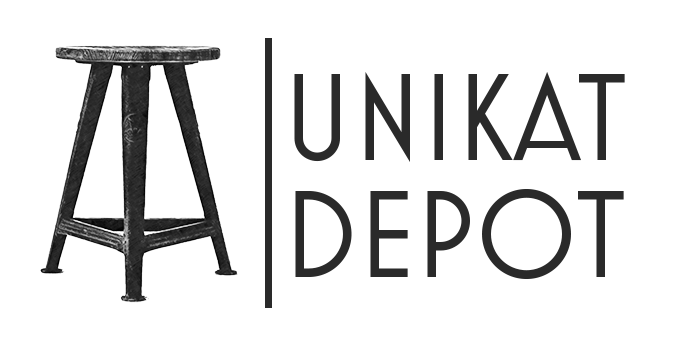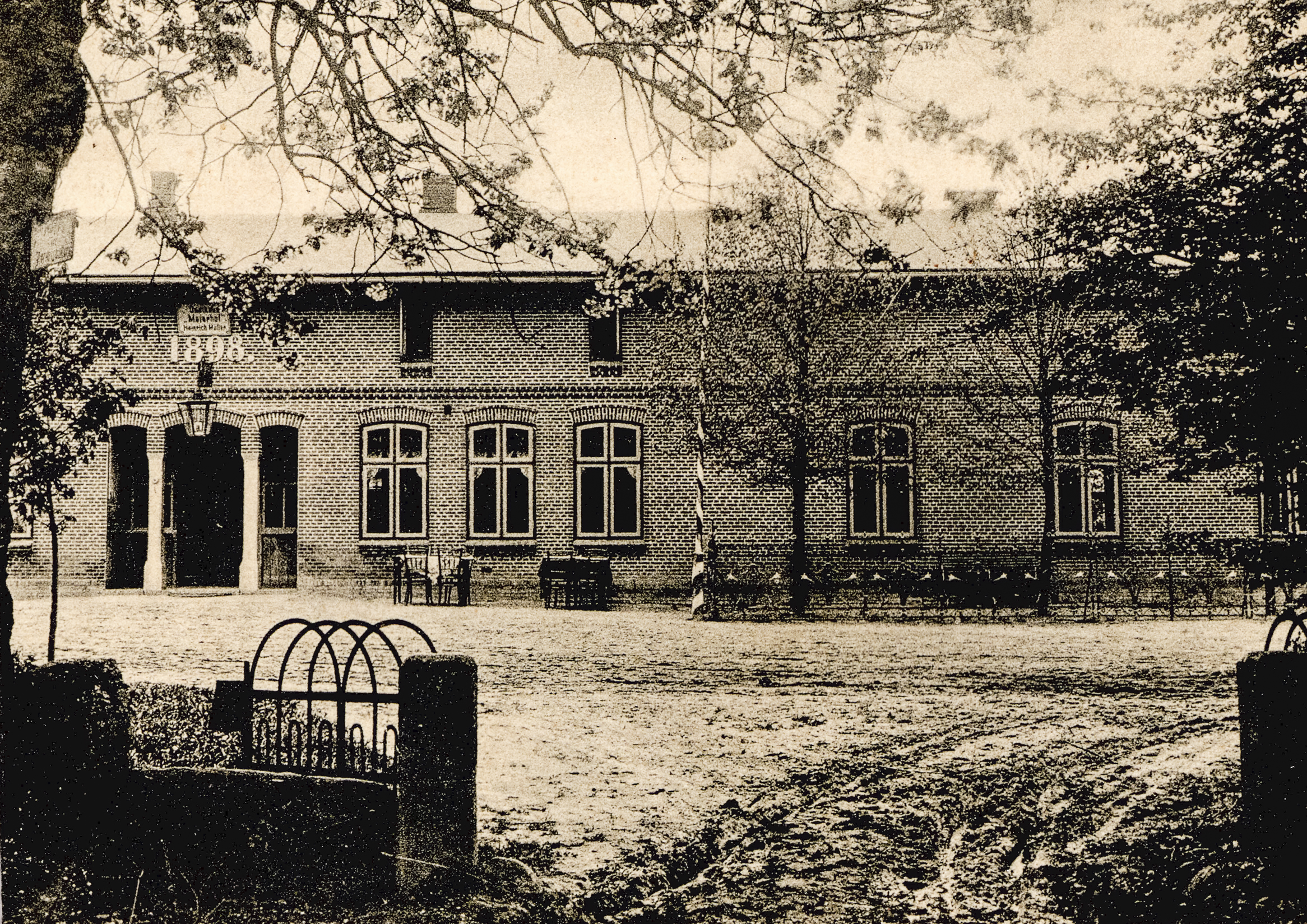The history of the Meierhof
Welcome to a journey through time into the history of the Meierhof! This enchanting rest farm has seen many ages and changes. From its humble beginnings to today’s image, the Meierhof tells a fascinating story about country life and the people who lived and worked here.
The origins of the Meierhof
The roots of the Meierhof go back to 1799. It was once founded as a small agricultural farm and served as a small farm for the nearby Friedrichshof. The first owners worked hard to clear the land and build a simple but functional farm complex. In the early 1820s the idea of using part of the farm for a restaurant arose. Baroness Clara von Liliencron, the owner at the time, recognized the potential that lay in such a facility. They converted part of the farm into a rustic restaurant after receiving approval from the Hüttener Amt in Schleswig. After her sudden death in 1836, the farm was farmed by various tenants and owners until the blacksmith Hinrich Christopher Möller from the nearby town of Brekendorf finally purchased the farm in 1854.
The Meierhof and the Möller family
The Möller family, who had now settled down, also ran a blacksmith shop and the Meierhof became a popular meeting place for locals and travelers from the area. As the new owners of the Meierhof, the Möller family knew how to enliven their newly acquired home with new activities and events. For example, target shooting competitions and forest festivals were held in summer and wood auctions in winter. Invitations to these events were announced in numerous advertisements. The first generational change in the Möller family probably took place in the 1990s. The son Detlef Hinrich Möller and his wife ran the Meierhof farm from there. This generation also enjoyed successful years at the Meierhof farm. You lived in a time in which you were blessed with a long period of peace after the war-filled years of 1848 – 1850, 1864 and 1870/71. During this time, the general population was also doing very well. The farm had become an important center of rural life in the region. Many leisure clubs that were founded at that time, such as the Hüttener Berg-Verein or various cycling and nature research associations, headed to the Meierhof. But the Möller family didn’t only have easy times. In 1898, on the night of August 6th to 7th, a very heavy thunderstorm broke out and the Meierhof burned down completely. But the hard-working family didn’t let it get them down and rebuilt the inn with a blacksmith shop in record time. On November 27, 1898, the innkeeper H. Möller invited people to the inauguration ball.
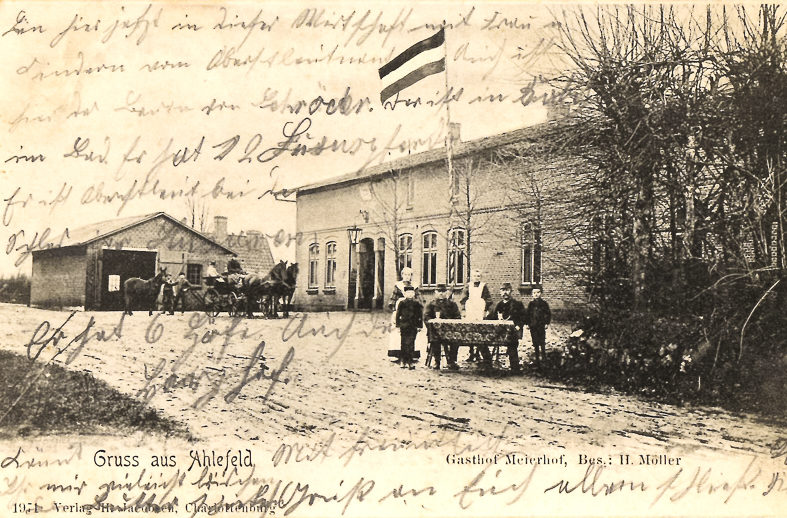
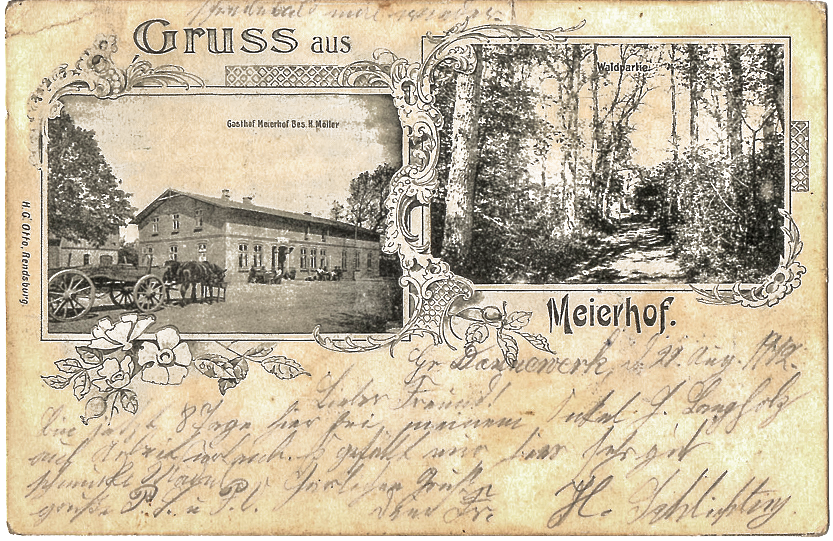
Times of change among the Klink family
The 20th century brought many changes. A new generational change took place when the daughter Christina Margaretha, who married the blacksmith Johann Klink from Berghusen in 1919, took over the farm together with her husband in 1920. From there, the Klink family ran the Meierhof. Industrialization and technological advances also influenced life on the Meierhof. The increasing motorization made the population more mobile and more people visited the farm. But in return, with motorization in the countryside, difficult times also came for the rural blacksmiths in the villages. With the horses, the task of forging horseshoes and shoeing the horses also disappeared. The old farm wagons were converted to rubber tires and no longer needed iron tires. The plowshares were made of high-quality steel, so they didn’t bend as often and didn’t need to be sharpened. As a result, the restaurant became more and more important and, for example, the number of sows was expanded in order to counteract the economic losses. The blacksmith shop was finally demolished in 1970 in order to build a new residential building on the site. In 1975 a generational change took place. The son Günter took over the entire property and from now on ran the farm. As a result of a major renovation project, the entire interior rooms were redesigned. With a new kitchen and toilet rooms, the restaurant was converted into a modern inn. In 2007 the farm was sold to Kirstin Hannemann and Robert Kirbach for age-related reasons and seven years later we purchased the farm.
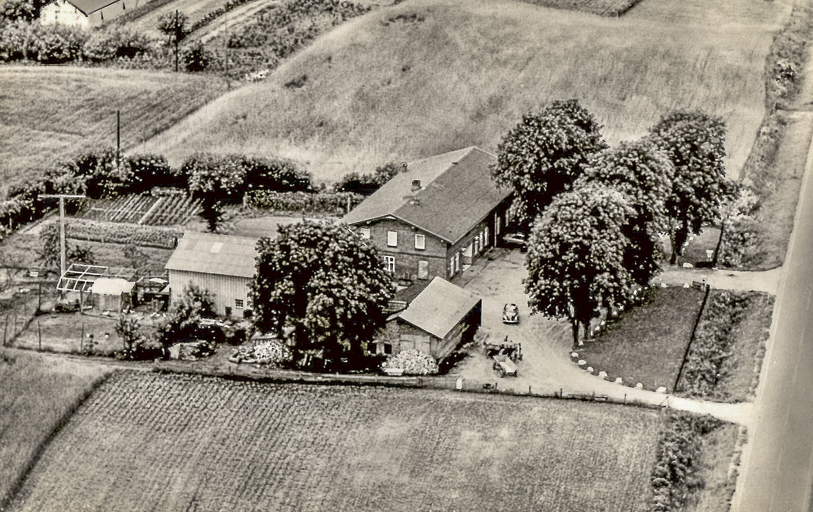
The families and their stories
The families have maintained and cared for the Meierhof over generations. Their stories are closely linked to the farm, and they have passed on memories and anecdotes that give us a vivid picture of life on the Meierhof. From the hard working hours in agriculture to the happy moments of celebrating together – the story of the Meierhof is also a story of people and their connection to the land.
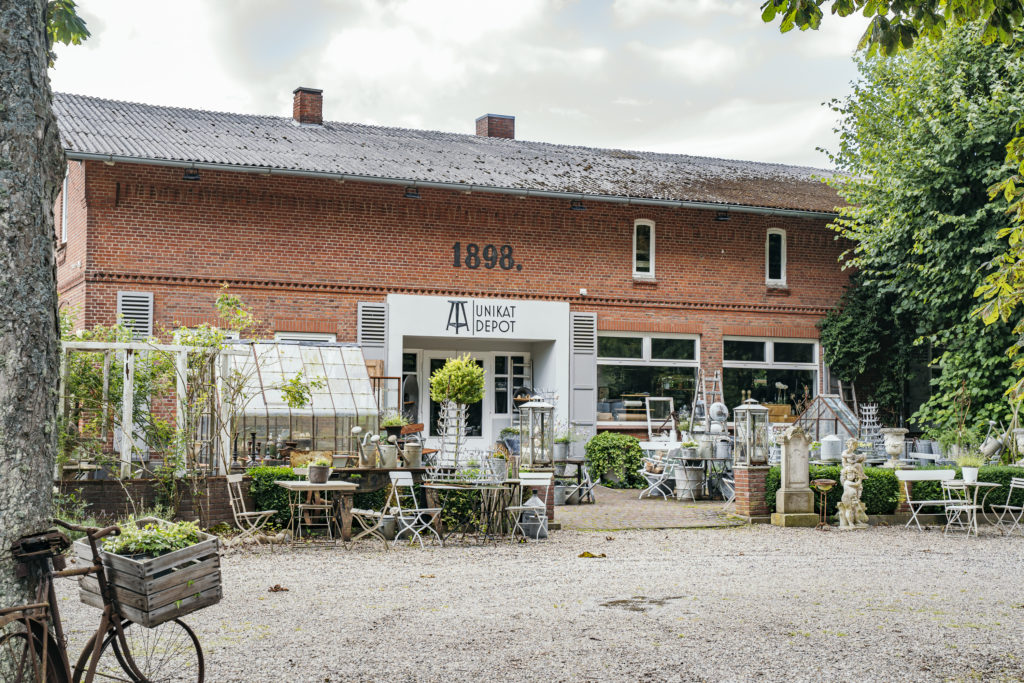
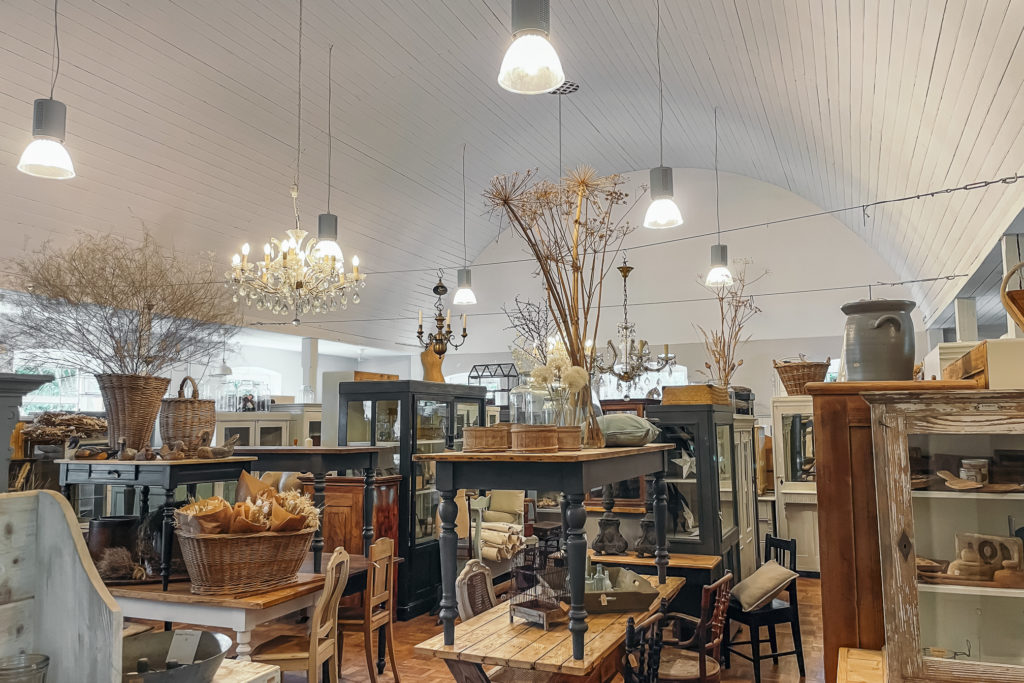
The Meierhof today
In the present, the Meierhof has undergone a remarkable transformation. The restoration of our Meierhof was an exciting and fulfilling undertaking that took us back in time. During the restoration and redesign of the inn, particular attention was paid to preserving the traditional character of the building. Historical elements such as wooden beams, old floor coverings or the round ceiling of the hall were carefully restored and integrated into the overall concept in order to preserve the original charm. Today we are looking forward to welcoming you to the old rooms of the inn and creating new stories and memories on the farm.
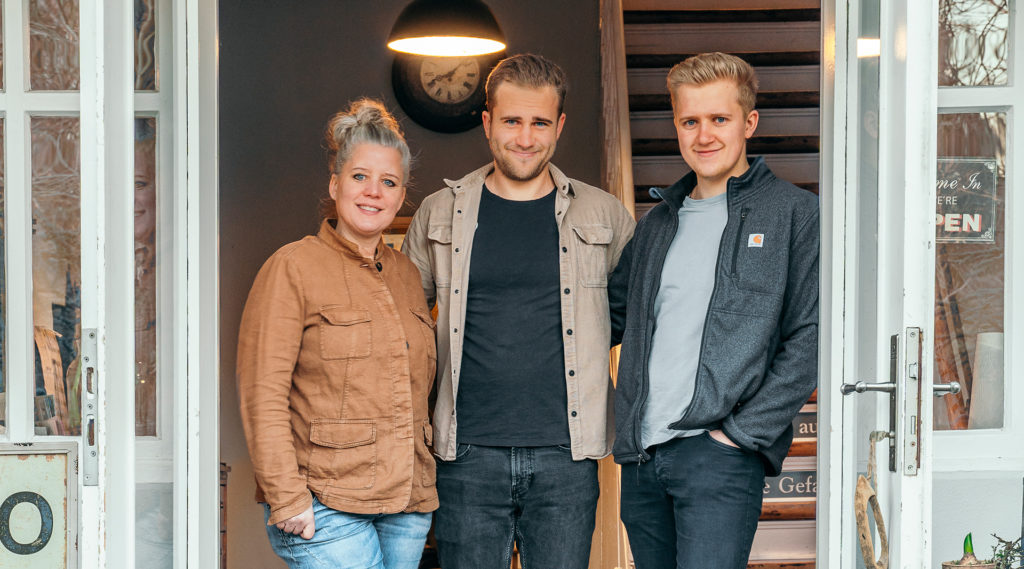
Sources:
“Die Entstehung und die Geschichte des Meierhofes von 1799 bis 1997” von Ernst Näeve und Henry Tiedemann
